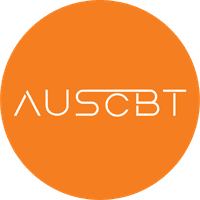
This role has a high level of AI exposure. While some human skills are required, many tasks could be automated or replaced by new technology.
Explore all careersAn Integration Developer creates solutions for IT systems to work together effectively, managing projects while addressing client needs.
Get qualified to work as an Integration Developer with a course recognised across Australia. Speak to a training provider to learn more.









In Australia, a full time Integration Developer generally earns $2,500 per week ($130,000 annual salary) before tax. This is a median figure for full-time employees and should be considered a guide only. As you gain more experience you can expect a potentially higher salary than people who are new to the industry.
 Courses.com.au Team
Courses.com.au Team
This industry has experienced a strong increase in employment numbers over the last five years. There are currently 153,700 people working in this sector in Australia and many of them specialise as an Integration Developer. Integration Developers may find work across all regions of Australia, particularly larger towns and cities.
Source: Australian Government Labour Market Insights
 Courses.com.au Team
Courses.com.au Team
If you’re planning a career as an Integration Developer, consider enrolling in a Bachelor of Information Technology. This course covers a range of topics including coding, user-centric design, systems configuration and modelling. You’ll develop the skills to manage IT systems, networks, hardware and web applications.
 Courses.com.au Team
Courses.com.au Team
Browse occupations related to Integration Developer



If you're looking to advance your career in technology, exploring Integration Developer courses in Bunbury can be an excellent starting point. These courses offer comprehensive training that covers key concepts, tools, and techniques relevant to the integration development field. With training providers in Bunbury that are either Registered Training Organisations (RTOs) or recognised by relevant industry bodies, you can be assured of quality education. This training not only prepares you for integration roles but also opens pathways to other exciting job opportunities.
As you delve into the Integration Developer field, consider how it relates to broader categories like Information Technology and Programming. These areas encompass various skills and knowledge that are highly applicable to your professional journey. The skills you acquire in these courses can well-position you for various roles, including Cloud Developer and DevOps Engineer, both of which have strong demand in the Bunbury job market.
Upon completion of your Integration Developer courses, numerous career paths await you. You might find interest in becoming a Salesforce Developer or a Machine Learning Engineer, both of which leverage skills gained during your training. Additionally, opportunities exist in related roles such as Application Support Analyst or Applications Engineer. This interconnectedness of various tech roles can enrich your career and enhance your expertise.
Choosing to pursue Integration Developer courses in Bunbury is a step towards embracing the innovative world of technology. With an array of resources and skilled trainers available locally, residents of Bunbury can easily access quality education tailored to the needs of the industry. Whether you aim to specialise or broaden your skill set, you'll find the training invaluable as it prepares you for challenging roles like Information Architect or Systems Designer. The knowledge and competencies gained will not only boost your resume but also make a significant impact on your future career prospects in the tech sector.